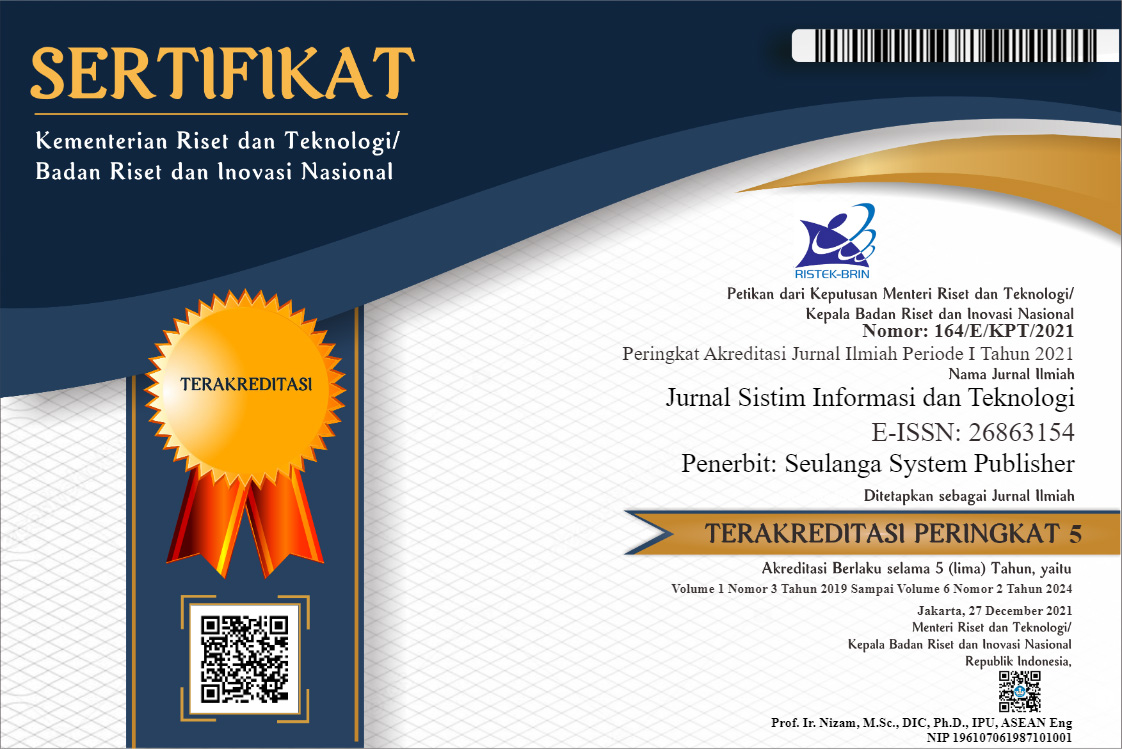Ethnographic Analysis to Identify Customer Experience and Customer Behavior in The Food and Beverage Industry
DOI:
https://doi.org/10.60083/jsisfotek.v6i2.352Keywords:
Craft Beverage, Mind Maps of Women and Men, Social InteractionsAbstract
This research aims to understand and describe the behavior of a group of people who consume craft beverages. We will conduct this research using a type of ethnography known as particularistic ethnography. We will use qualitative research techniques like group meetings and in-depth interviews in this research. In the analysis of men's mind maps, the words friends and food appeared most frequently, indicating that men associate drinking craft beverages with strong relationships with friends and consume them in a relaxed and informal setting, often accompanied by food consumption. On the other hand, in the analysis of women's mind maps, although the compartments are similar to men's with the dominance of the word friend, the difference lies in the consistent use of pink in writing words, especially friendship. This suggests that women associate craft beverages with camaraderie with friends in a fun, relaxed atmosphere. Both men and women equated craft beverages with femininity. They describe these characteristics as being informal, wearing jeans, having a friendly attitude, and having positive energy. This suggests that craft beverage typically evokes an informal and relaxed atmosphere, lacking the structure of other products or services. This shows that consumers see craft beverages as fun, warm, and suitable for enjoying in a relaxed, friendly atmosphere. Craft beverages and social interactions between friends have a strong connection, and drinking craft beverages occurs in a relaxed and laughter-filled atmosphere.
References
Chauhan, C., Dhir, A., Akram, M. U. I., & Solo, J. (2021). Food Loss and Waste in Food Supply Chains: A Systematic Literature Review and Fremework Development Approach. Journal of Cleaner Production, 1-14.
Beach, D. (2005), "From Fieldwork to Theory and Representation in Ethnography", Troman, G., Jeffrey, B. and Walford, G. (Ed.) Methodological Issues and Practices in Ethnography (Studies in Educational Ethnography, Vol. 11), Emerald Group Publishing Limited, Leeds, pp. 1-17. https://doi.org/10.1016/S1529-210X(05)11001-8
Davie-Kessler, J. (2016), "Ethnography as Subject, Ethnography as Object: Experimenting with Research in a College Writing Classroom", New Directions in Educational Ethnography (Studies in Educational Ethnography, Vol. 13), Emerald Group Publishing Limited, Leeds, pp. 193-212. https://doi.org/10.1108/S1529-210X20150000013007
Gardjito, M., & Swasti, Y. R. (2014). Postharvest Physiology of Fruits and Vegetables. Yogyakarta: Gajah Mada University Press.
Deng, C. (2023), "When ethnography meets scientific aspiration: a comparative exploration of ethnography in anthropology and accounting", Qualitative Research in Accounting & Management, Vol. ahead-of-print No. ahead-of-print. https://doi.org/10.1108/QRAM-11-2022-0183
Carroll Bronson (2015), "Practical Ethnography: A Guide to Doing Ethnography in the Private Sector", Journal of Organizational Ethnography, Vol. 4 No. 3, pp. 367-370. https://doi.org/10.1108/JOE-07-2015-0018
Parfitt, J., Barthel, M., & Macnaughton, S. (2010). Food Waste within Food Supply Chains: Quantification and Potential for Change to 2050. Philosophical Transactions of the Royal Society of London B: Biological Sciences, 365(1554), 3065-3081.
Manuela Nocker (2015), "An Ethnography of English Football Fans. Cans, Cops and Carnivals. Series: New Ethnographies", Journal of Organizational Ethnography, Vol. 4 No. 1, pp. 132-133. https://doi.org/10.1108/JOE-12-2014-0042
Tannady, H. (2019). Process improvement to reduce waste in the biggest instant noodle manufacturing company in South East Asia. Journal of applied engineering science, 17(2).
Peacock, D. (2017), "Institutional Ethnography, Critical Discourse Analysis, and the Discursive Coordination of Organizational Activity", Reid, J. and Russell, L. (Ed.) Perspectives on and from Institutional Ethnography (Studies in Qualitative Methodology, Vol. 15), Emerald Publishing Limited, Leeds, pp. 91-106. https://doi.org/10.1108/S1042-319220170000015007
Downloads
Published
How to Cite
Issue
Section
License
Copyright (c) 2024 Jurnal Sistim Informasi dan Teknologi

This work is licensed under a Creative Commons Attribution 4.0 International License.









